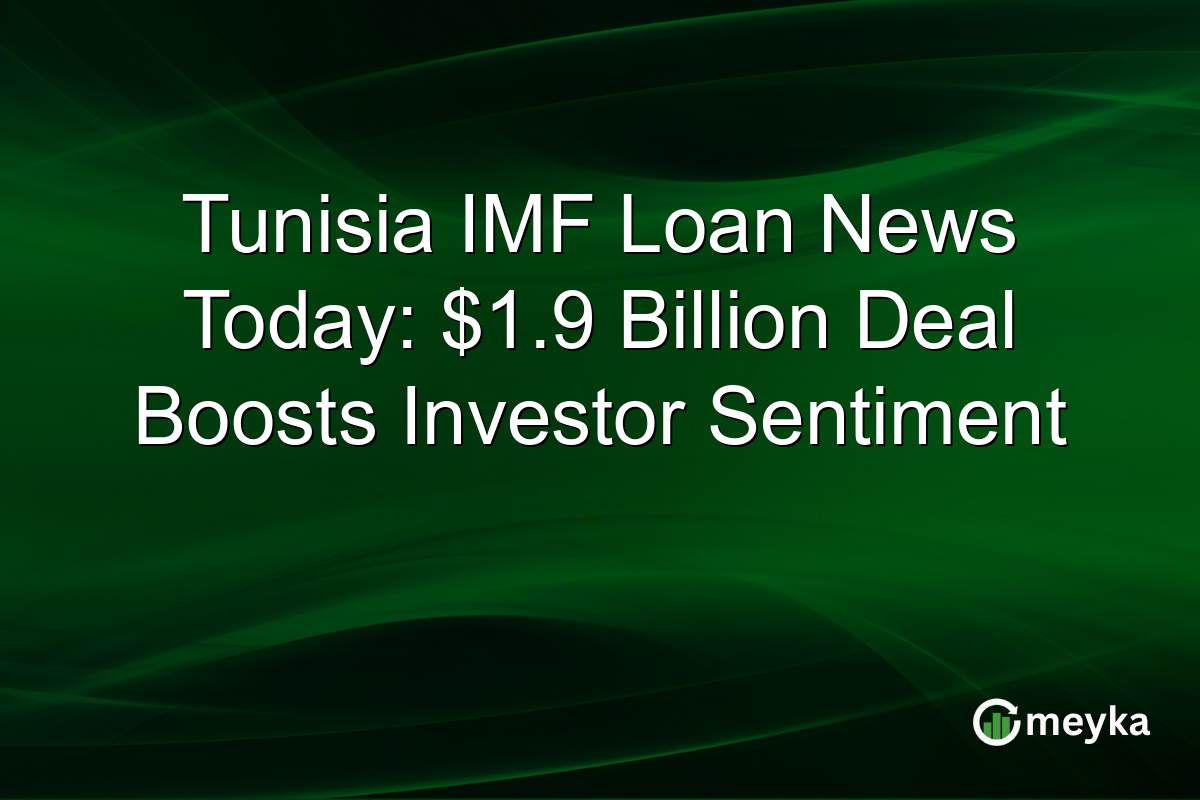Tunisia IMF Loan News Today: $1.9 Billion Deal Boosts Investor Sentiment
Today, Tunisia made headlines by securing a preliminary $1.9 billion loan agreement with the International Monetary Fund (IMF). This deal is a significant step for Tunisia’s economic reforms and is set to stabilize its economy. For investors eyeing North Africa, this development is crucial as it boosts confidence and promises to create a more robust investment landscape.
The Impact of the Tunisia IMF Loan 2025
Tunisia’s $1.9 billion loan from the IMF was announced today. It aims to support the country facing significant fiscal challenges. The loan is part of a broader strategy to implement economic reforms and attract foreign investment. This financial lifeline is expected to help Tunisia manage public finances and stimulate economic growth. The past few years have been tough for Tunisia, with COVID-19 affecting tourism, a key sector. This deal forms part of a recovery strategy, highlighting the IMF’s commitment to stabilize North Africa’s financial systems. Learn more here. This shows the loan is more than a financial deal; it’s a vote of confidence in Tunisia’s potential to reform.
Tunisia Economic Reforms and Foreign Investment
The IMF loan is conditional upon implementing major reforms. These include reducing public sector deficits and restructuring state-owned enterprises. Such changes aim to make Tunisia more attractive to foreign investors, key to its economic recovery. Foreign investments haven’t been strong in recent years, but this loan could mark a turning point. Investors often look at IMF involvement as a sign of fiscal responsibility and stability. Tunisia’s government seems committed to these reforms, which are essential for driving economic growth. The focus on reform is expected to resonate with investors looking for stable and promising opportunities in North Africa.
Investor Sentiment in North Africa Finance
Investor sentiment has been cautiously optimistic since the loan announcement. This optimism is not just about the financial inflow, but reflects broader economic stability prospects. North Africa, with its strategic location, has always been interesting for global investors. With the IMF’s backing, Tunisia could become a hub for investment in the region. Analysts are watching closely, as successful economic reforms will likely prompt increased foreign direct investment. This development is a positive signal to international markets, indicating potential long-term growth and stability in Tunisian finance.
Final Thoughts
The IMF’s $1.9 billion loan to Tunisia is a pivotal development for the nation and its position in North Africa’s financial market. With this support, Tunisia can implement crucial economic reforms, enhancing fiscal stability. This move is likely to boost investor confidence and foreign investment, presenting Tunisia as an attractive destination for global investors. Looking ahead, the commitment to reform and stability bodes well for both local and international stakeholders, solidifying Tunisia’s role in regional and global finance.
FAQs
The IMF loan is vital as it supports Tunisia’s economic reforms, addresses fiscal challenges, and encourages foreign investments. It aims to stabilize the economy and restore investor confidence.
Reforms include reducing public sector deficits and restructuring state-owned enterprises. These aim to improve fiscal responsibility and attract foreign investment for economic growth.
Investor sentiment is optimistic as the loan signals economic stability. IMF involvement is viewed as a commitment to fiscal responsibility, which attracts global investors.
Disclaimer:
This is for information only, not financial advice. Always do your research.






